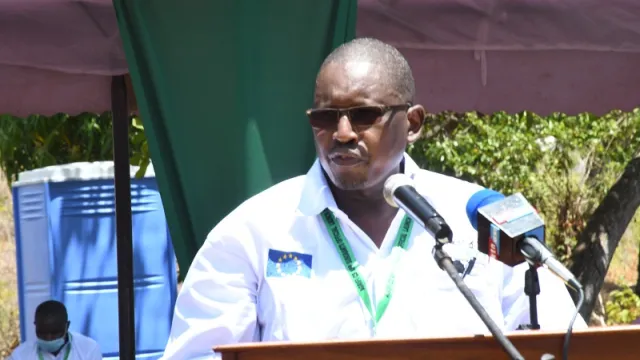Kwale climate smart farms to benefit 500,000 people across value chain

Kwale climate smart farms to benefit 500,000 people across value chain
Small scale farmers in Kwale County will benefit from a five-year smart farming plan that seeks help them cope with adverse effects of climate change.
The project, which will be rolled out by Kenya Agricultural and Livestock Research Organization (KALRO) at Mwazaro Bati beach area, has received Ksh650 million grant from the European Union and Ksh1.5 million from the government.
Dubbed Kenya climate smart agricultural productivity project, the initiative targets 500,000 beneficiaries across the value chain.
Read also: Fresh reforms promise high returns for milk farmers
The beneficiaries - smallholder crop farmers, pastoralists and the fisher-folk – will lead the adoption and commercialization of new technologies within 12 production value chains by 2024.
“Enormous research innovations have been developed in the past but have often not been disseminated to the desired beneficiaries. This is why we now speak of "research for development" rather than focusing purely on research. The paradigm shift we are celebrating today is in line with broader EU support to private sector job creation in the agricultural sector,” said EU Deputy Head of Delegation, Katrin Hagemann.
Creating a market for agricultural produce and services will enable farmers and agribusiness investors to create jobs in the value chain and increase incomes and nutritional status.
The project seeks to develop new drought resistant and more yielding crop varieties.
The initiative, which also aims at accelerating the adoption of existing smart technologies through public private partnerships, will be rolled out under 19 non-governmental, faith, and community-based organizations in Kenya.
Soon, an additional 21 organizations will be brought on board to make a total of 40 sub-grantees. These organizations will receive about KES300 million in grants over the project period.
“The ongoing activities are major milestones for agricultural research in the country. We expect rapid adoption of climate smart technologies to improve the food security situation in the country. This project is also an excellent example of a public private partnership,” said Kalro director-general, Dr Eliud Kireger.
Read also: Safaricom deploys super-fast 5G internet connectivity
The project’s technology transfers model entails training farmers and fisher-folks on new skills, links to markets, and capacity building forums with financial service providers.
It aims to create jobs, improve incomes, and ensure food and nutritional security of our people. So far, 4,000 jobs with a total income of at least Sh10 million have been created, mainly at the farm level.
The project will also use farmer-to-farmer exchange visits to accelerate its adoption. About 19 partners have established innovation platforms, where stakeholders meet even virtually to learn and exchange ideas.



